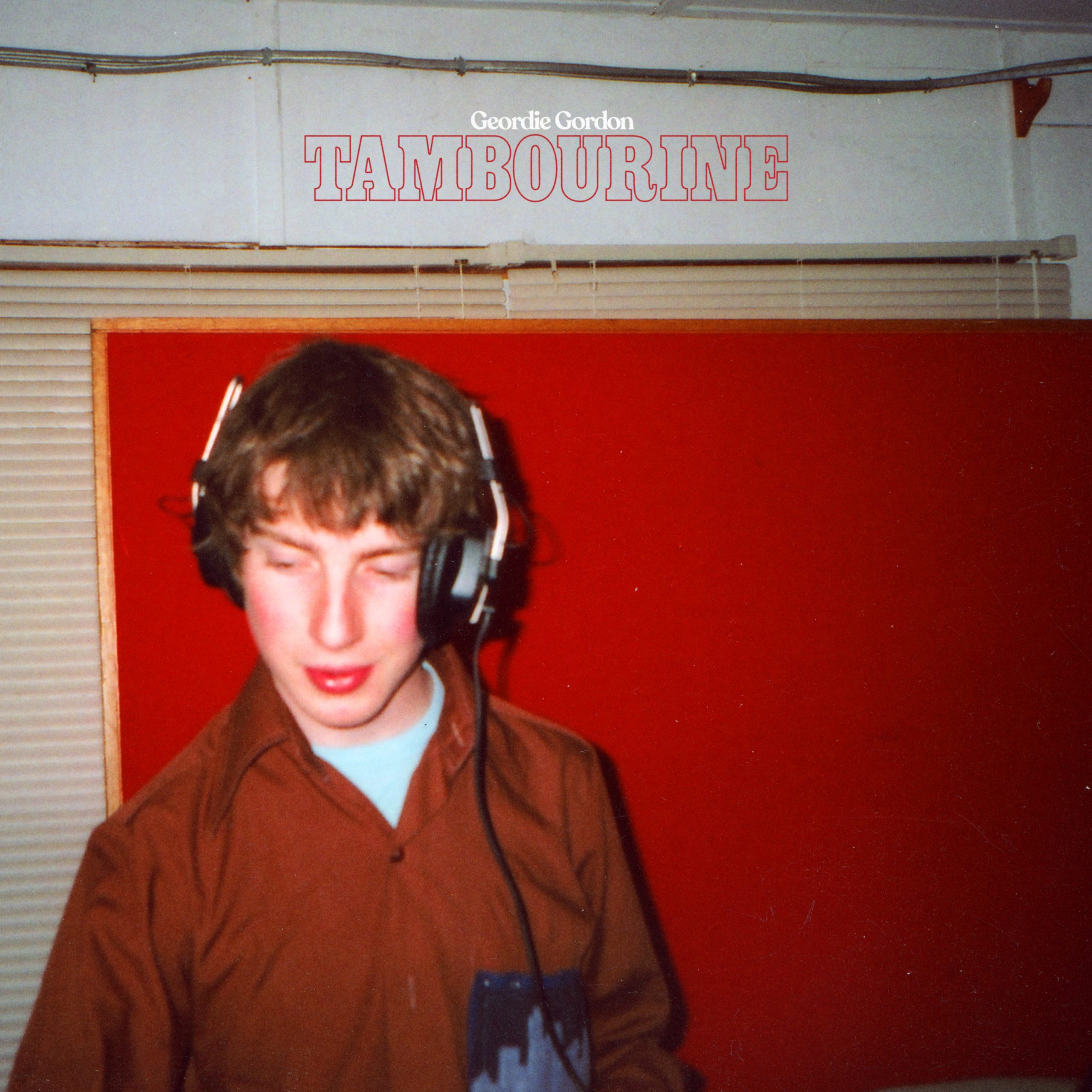You’ve likely seen Geordie Gordon on stage. The Toronto singer/songwriter is currently a member of two internationally acclaimed indie acts: U.S. Girls and Islands. He also served as a sideman for Andy Shauf just prior to that songwriter’s 2016 breakthrough. When not on the road, he works in a queer bookstore stocked with coming-of-age stories. His second solo album, Tambourine, is Geordie’s own coming-of-age story, in more ways than one. It’s the album that will introduce the world to Geordie Gordon’s depth of talent as a singer, arranger, lyricist and melodicist.
Tambourine opens with the title track, about a teenage Geordie (pron. Jordy) taking the bus from his small university town to Toronto to see the Hidden Cameras. There, the closeted teen witnesses an outburst of queer and pansexual joy, where tambourines are passed to the crowd and all are welcome to join the celebration: They were an army of love / With sound raining down from above / lifting their violins / holding their heads high and proud. The album closes with “Homecoming,” a song written after Geordie listened to an audiobook by activist Cleve Jones. “He worked with Harvey Milk, and in a short few years he went from being this hippie boy in the late ’60s to later running the AIDS quilt after losing all his friends. That song is a tribute to the ancestors for their brave service.”
Geordie Gordon was 16 when gay marriage was made legal in his home province of Ontario. He was raised in an accepting community of hippies and leftist punks. He’s a son of James Gordon, a successful Canadian folk singer covered by the Cowboy Junkies on The Trinity Session. Geordie formed his first band as a teenager, the misnomered Barmitzvah Brothers (featuring Bird City’s Jenny Mitchell). They toured Canada and were on the cover of Toronto’s Now Magazine. They sounded like nothing else on the thriving Canadian indie scene at the time: junkstore instruments, unusual lyrics, and a childlike sense of play—because they were still actual children.
“I had such a different childhood than most coming-of-age stories,” says Geordie. “Even before high school, I learned that being quirky was a thing. My band never tried to fit in, and yet we were embraced by older people and the indie scene. I had so many sensitive music friends that I wasn’t in a toxic area. It was a unique environment; it wasn’t very typically straight.”
Musically, Tambourine is also a coming-of-age statement, and his boldest project to date. His first album, in 2014, was made with his brother Evan under the name The Magic. His first solo album, The Tower, was a very solitary affair and came out during the pandemic—release shows were hampered by new lockdowns.
This time out, Geordie is writing on tenor guitar for the first time, tapping into the folk influences of his childhood. “My brother and I were never like my dad, a folk festival singer, who goes to workshops and talks about his songs,” he says. “So for me it’s a fun challenge to get closer to that.” Geordie’s not playing folk festivals yet, but he did host secret shows by candlelight in Toronto parks during the pandemic.
Everything about Tambourine is a huge leap forward for Geordie. The layered vocal harmonies explore both his falsetto heights and the lower end of his register. The electronics of The Tower are still present, as are the soft pop vibes of U.S. Girls and Islands. A swelling string section lends a Nick Drake vibe to “Spinning Wheel,” a song written while he lived with his 92-year-old grandmother during the pandemic (she also stars in the video, playing a witch.) Grandma Gordon, a poet, inspired several songs on the record.
From teenage awakenings to the wisdom of elders, Tambourine is the record Geordie Gordon was born to make. And he’s just getting started.







